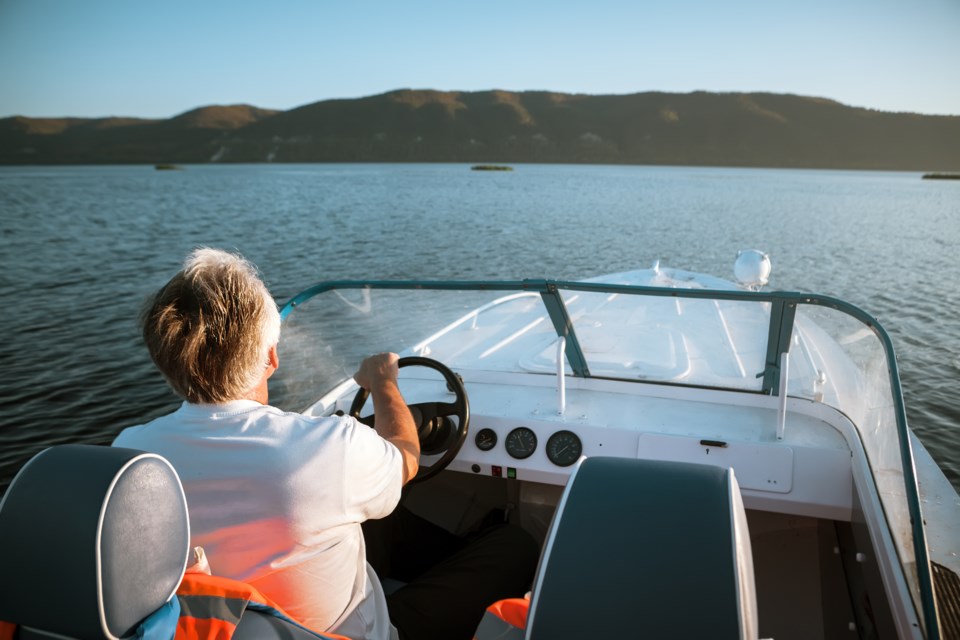Most of us would agree that having insurance is important. But what’s even more important is having the right insurance for our needs. That’s especially true when it comes to owning a boat or trailer – whether it’s a small aluminum fishing boat or a yacht, a pop-up tent trailer or a luxury mobile home.
Understanding the grey areas that exist when it comes to having proper insurance coverage can make a big difference, and the right insurance advisor will explain these nuances so you can make the right decision. For example, did you know there’s a significant difference between simply insuring your property versus insuring yourself from liability? Or, for boat insurance, that there’s a difference between insuring your assets while in tow versus insuring them when parked in a campground or docked at a marina?
“Liability is one of the most important things to understand,” said Clare Kempe, Westland Insurance branch manager for Thunder Bay District.
“People think they’re fine when towing a trailer, believing that it’s insured under their vehicle policy. However, your vehicle coverage extends liability only, so if you roll your truck or have an accident and your trailer is damaged or your boat is written off, there’s no coverage. The liability is the only thing covered.”
That’s why it’s critical to dig deeper and find out if you have the proper coverage for your boat or trailer, whether you have an auto policy or a homeowner’s policy. It’s also important to understand the nuances of what each policy covers, and what it doesn’t.
Examples include whether boats and trailers are hitched to vehicles or unhitched, whether a boat is in your garage or at the marina, or whether your trailer is in your driveway or parked for the summer. Each of these scenarios could require additional coverage or a different policy altogether.
Let’s look at boats, for example. According to Tonya Korba-Nyberg, Regional Sales Manager with Westland Insurance Group, a boat parked in your home garage has little to no coverage under your homeowner’s policy.
“There are limits to homeowner policies when it comes to boats,” Tonya said. “And there are limits for watercraft depending on the company. Boats can get some automatic coverage, but there’s a max on your horsepower, usually a max value around $3,000 total for boats and motors. Watercraft coverage is typically meant for canoes, kayaks, and small fishing boats. It would be best to have the boat listed as a rider on your policy, that way, your boat’s covered all year round in case of damage or fire loss.”
Getting an actual marine insurance policy for your boat could protect you from other potential claims.
If you secure a policy that gives you pollution coverage and your boat sinks, leaking gas and oil into the water, the Ministry of Natural Resources will come after you to ensure it gets cleaned up. Your policy should cover the associated costs of such a clean-up. Adding additional riders to your policy or getting a dedicated policy for your boat may include coverage for additional equipment on your boat, including GPS systems, downriggers, full replacement costs, and more.
Trailers require similar additions to insurance policies to ensure owners are properly covered, not just for damage but also for liability.
“Let’s say someone slips and breaks a leg coming out of a trailer parked in your driveway,” said Tonya. “Without a proper rider on your policy, your homeowner policy has limited coverage for that kind of situation. If you don’t have a policy at all, there’s limited coverage for the liability.”
According to Clare, it’s vital for people to ensure their liability coverage extends to protect them from anything that can go wrong when owning a trailer, boat, or recreational vehicle.
“The loss of property is one thing. You might take a hit because your boat or trailer wasn’t insured, and damage occurred. A person can get back on their feet after that,” said Clare. “But liability is much harder to recover from and can have detrimental impacts on a person’s life. We’re seeing a much higher volume of liability claims in our office these days, which really reinforces the importance of proper protection.”
Contrary to what people may think, topping up insurance to ensure you have the right amount of coverage is an affordable and necessary option.
“Clients come in saying they need to add $4,000 in coverage and they find out it only costs them $20,” said Clare. “People are scared to share the true values of their assets because they think it’s going to cost them. However, what actually costs them is the liability and the price to fully repair a unit with multiple additions and lots of new equipment. Most of the time, these specialty policies are cheaper than the coverage on a home policy.”
Ultimately, both Clare and Tonya suggest that the best step to take is to talk to a broker.
They’ll make the complexities easier to understand and tailor a policy just for you, helping you find the best coverage for your unique needs. Find out more online.



